Abstract
We extended the use of operant procedures to decrease immediate echolalia and increase the appropriate responding to questions of a 21-year-old autistic man. Three experiments were conducted in which the overall plan was to encourage the subject to remain quiet before, during, and after the presentation of questions and teach him to use environmental cues (i.e., word cards or a model's responses) to increase the likelihood of responding correctly. Multiple baseline designs demonstrated that echolalia was rapidly replaced with correct stimulus-specific responses. In addition, there were a variety of generalized improvements in the subject's verbal responses to questions. The procedures and results are contrasted to previous research in an attempt to explain the encouraging findings.
Full text
PDF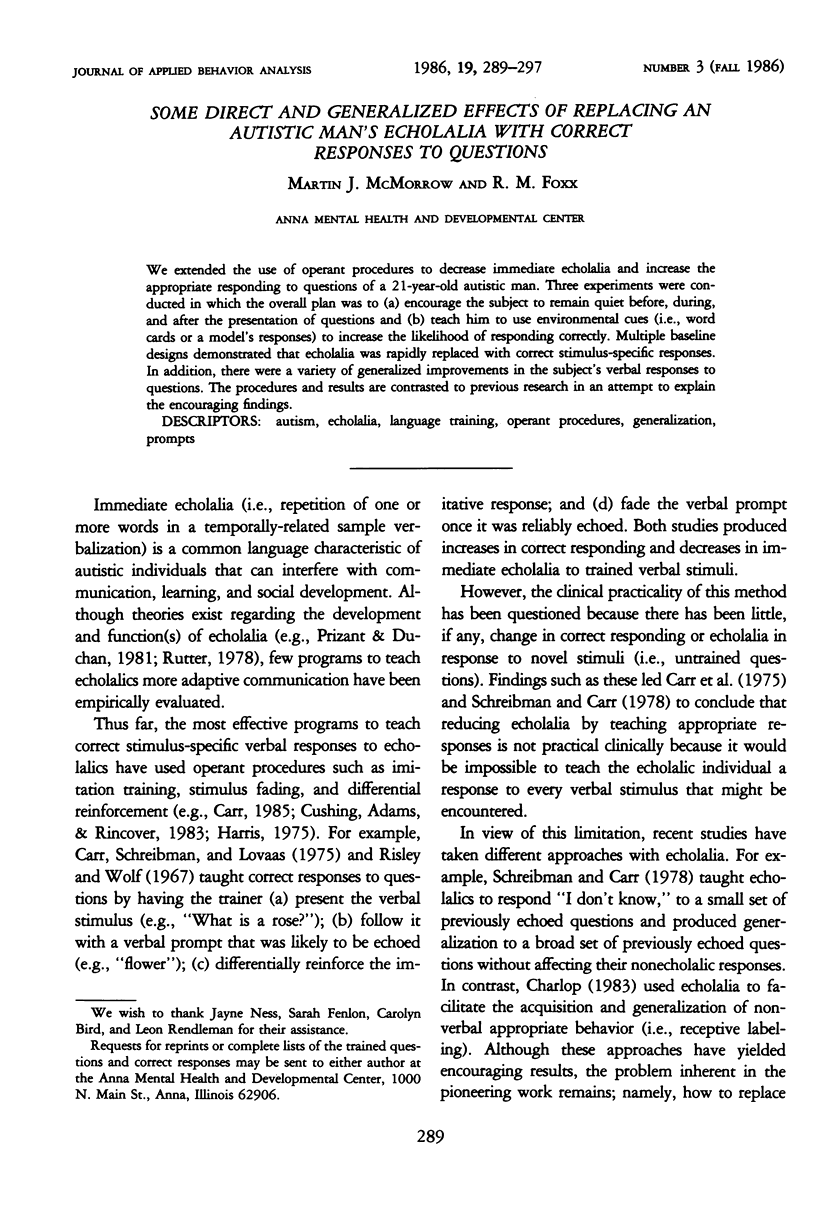
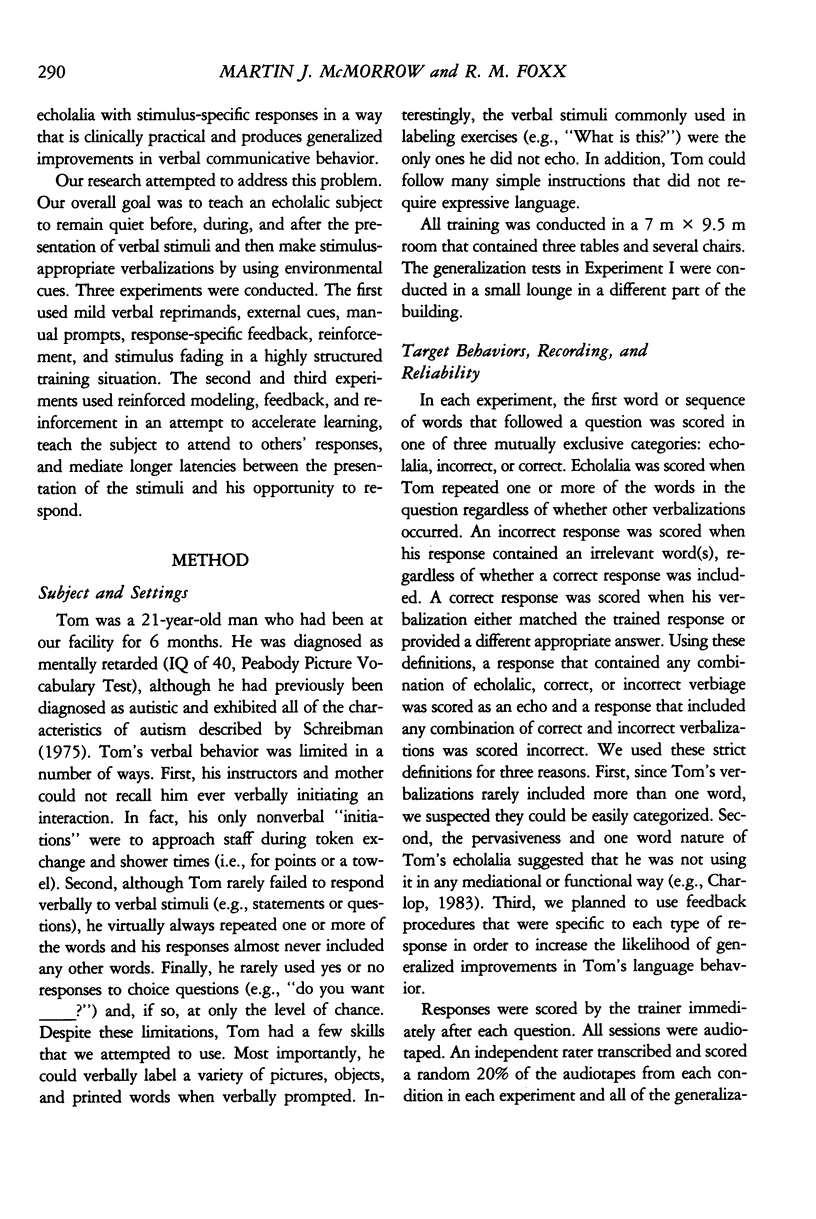
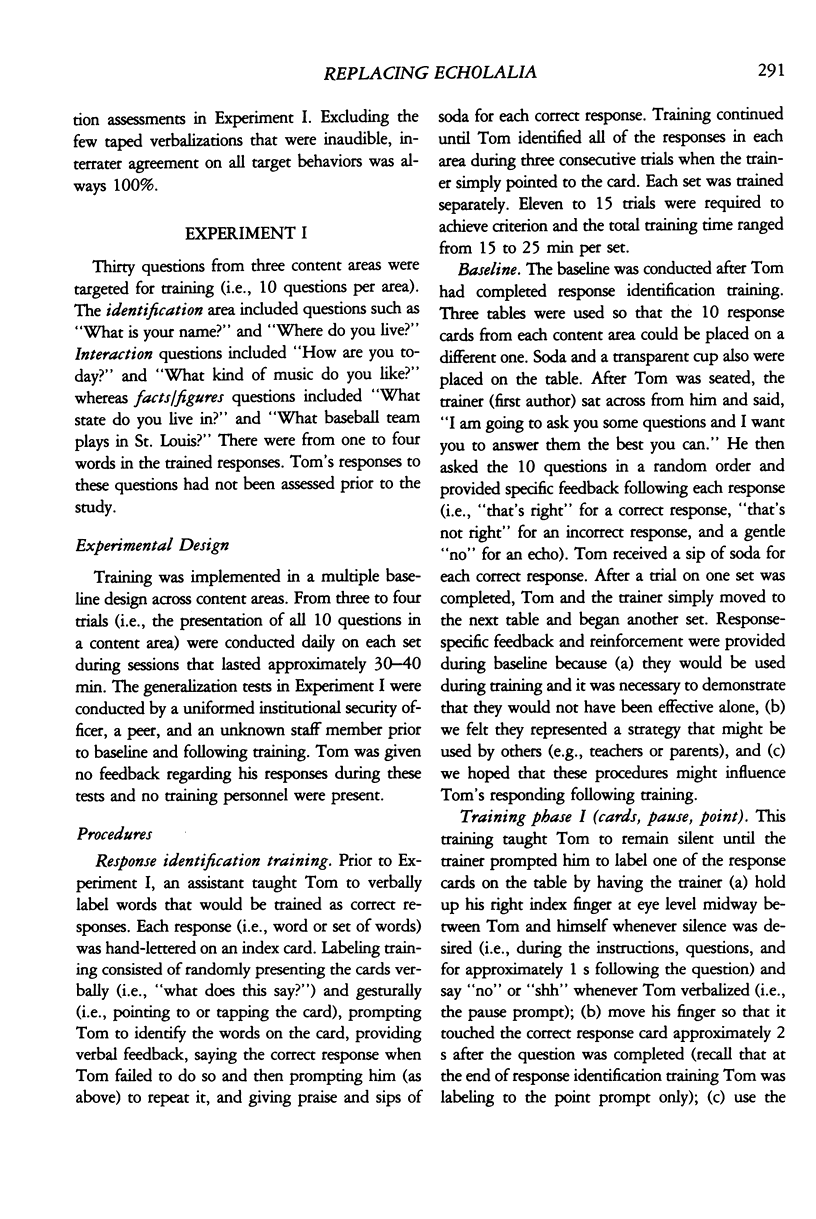
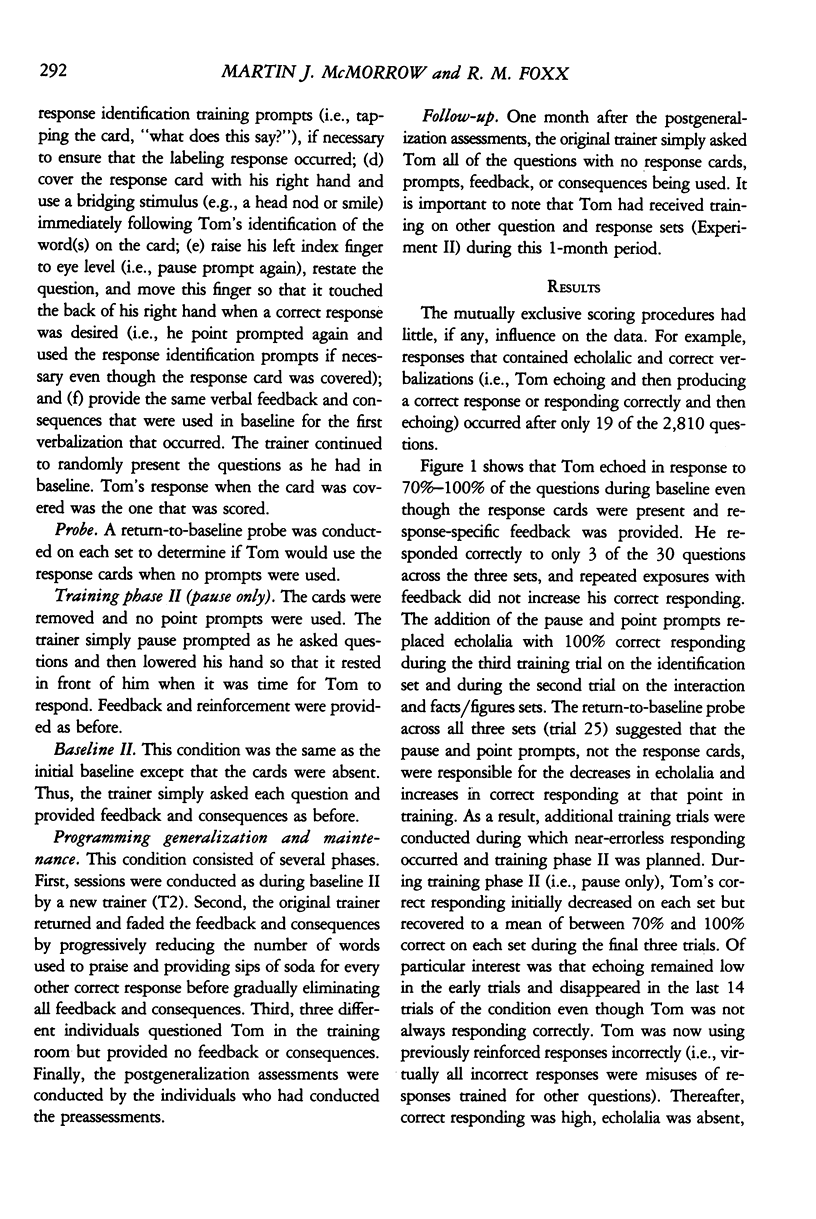
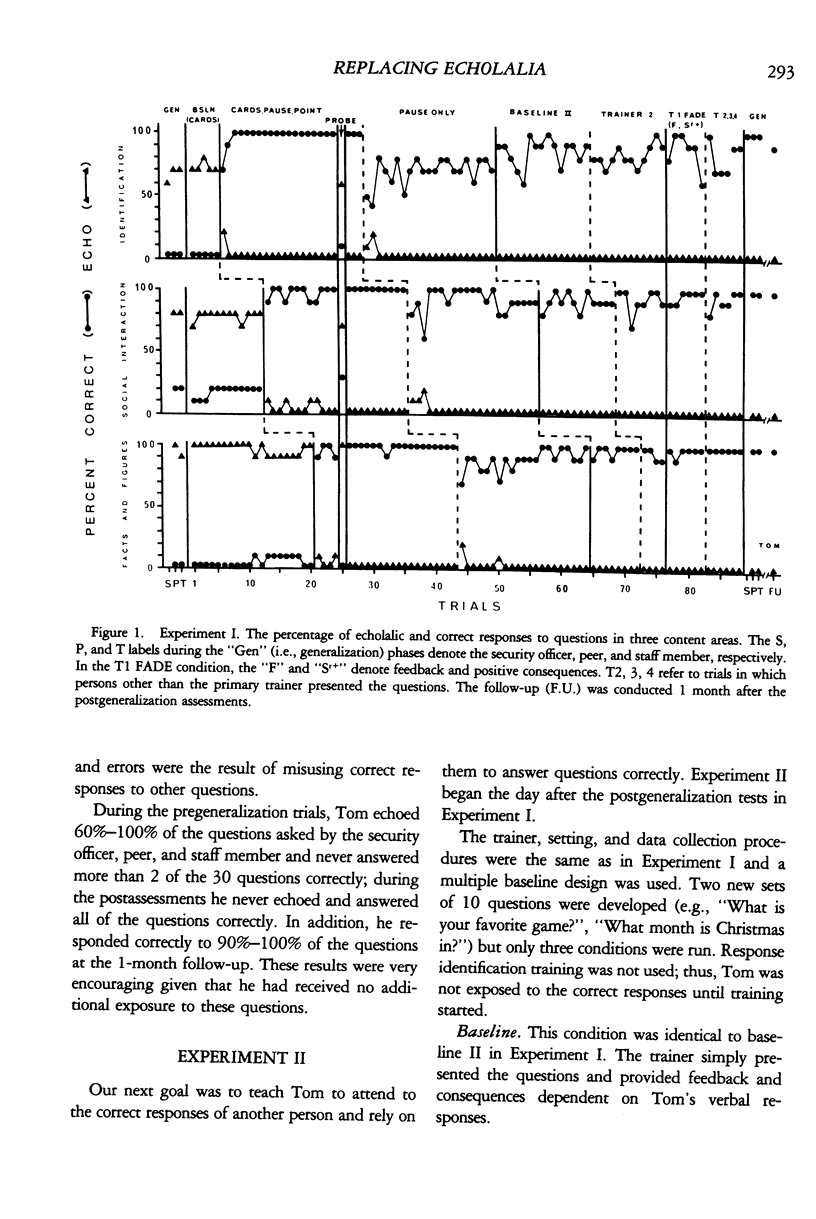
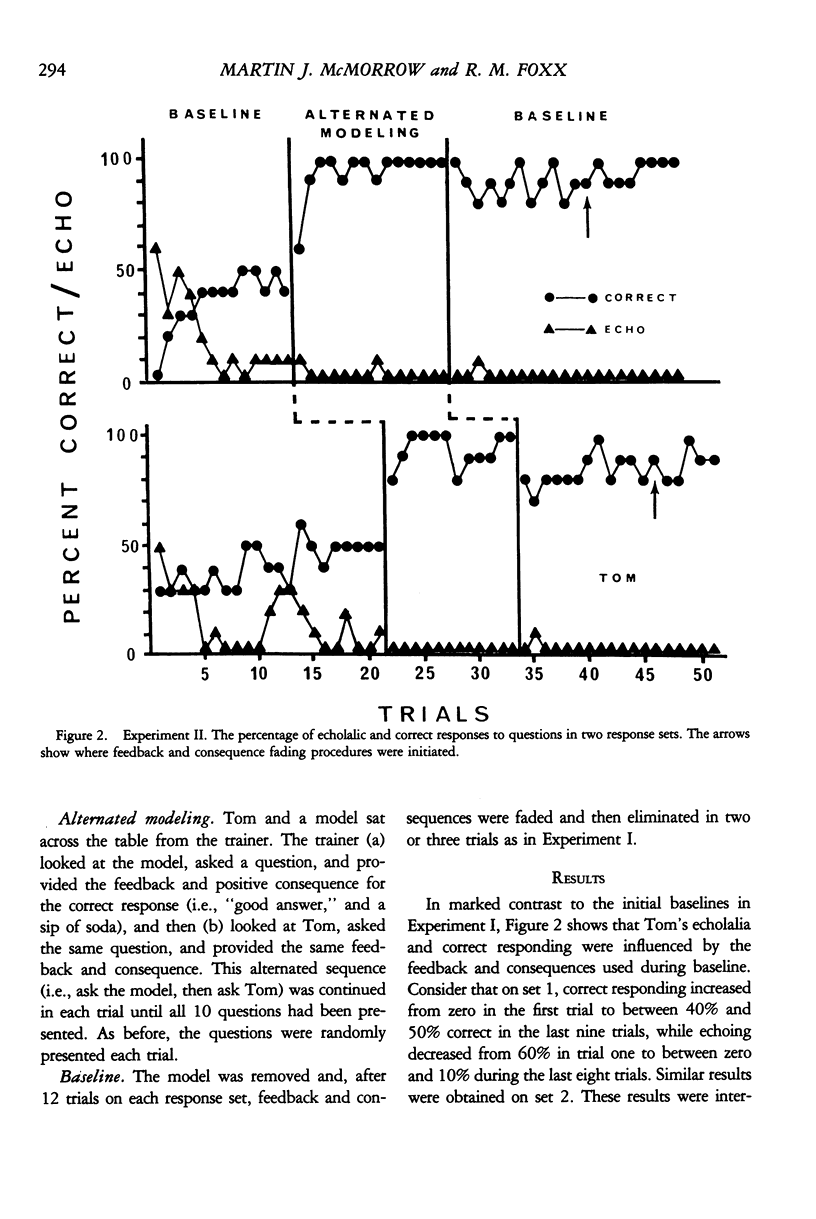
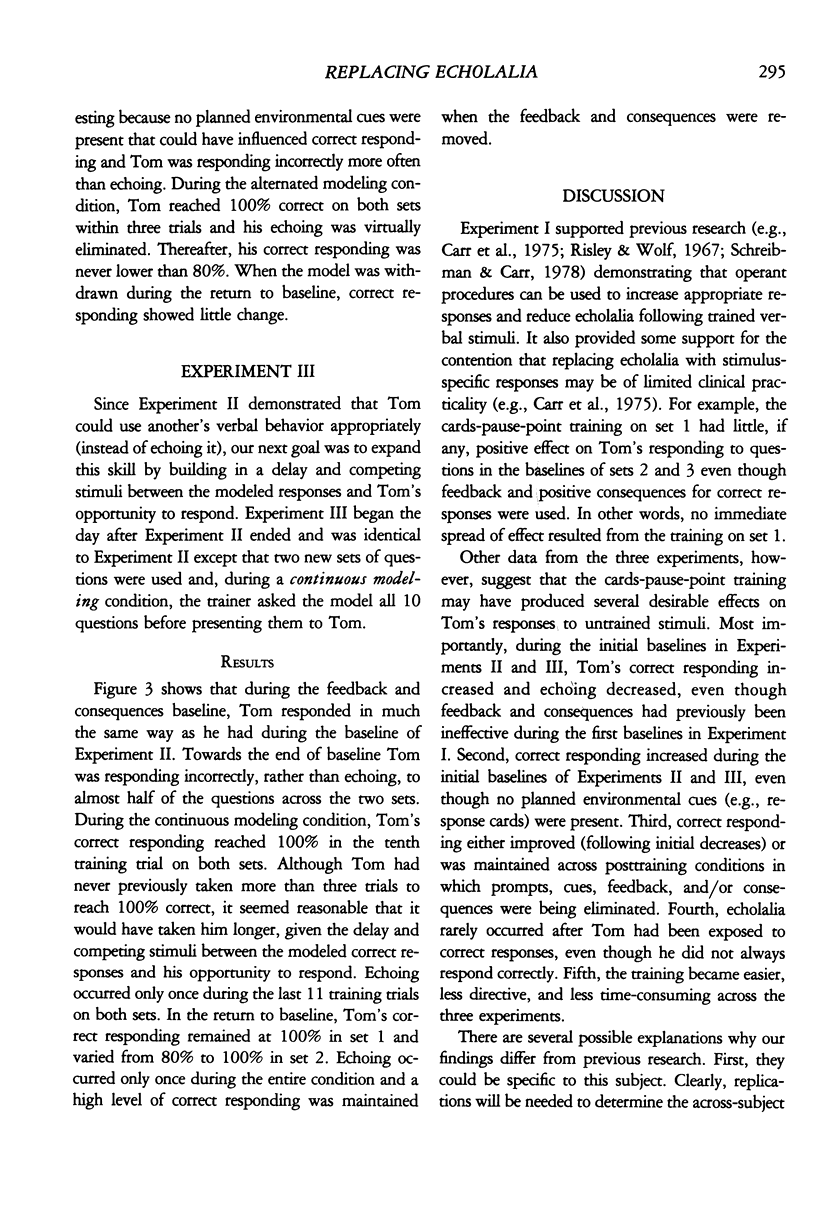
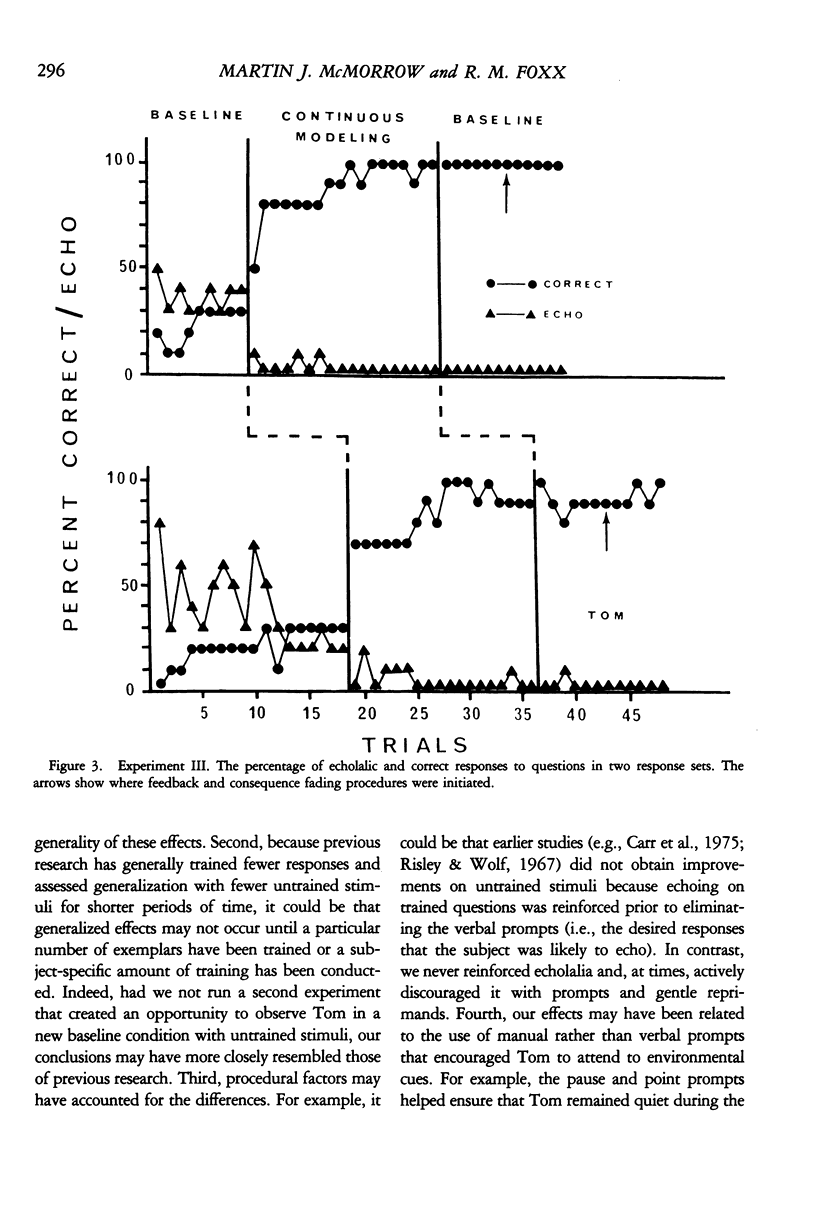
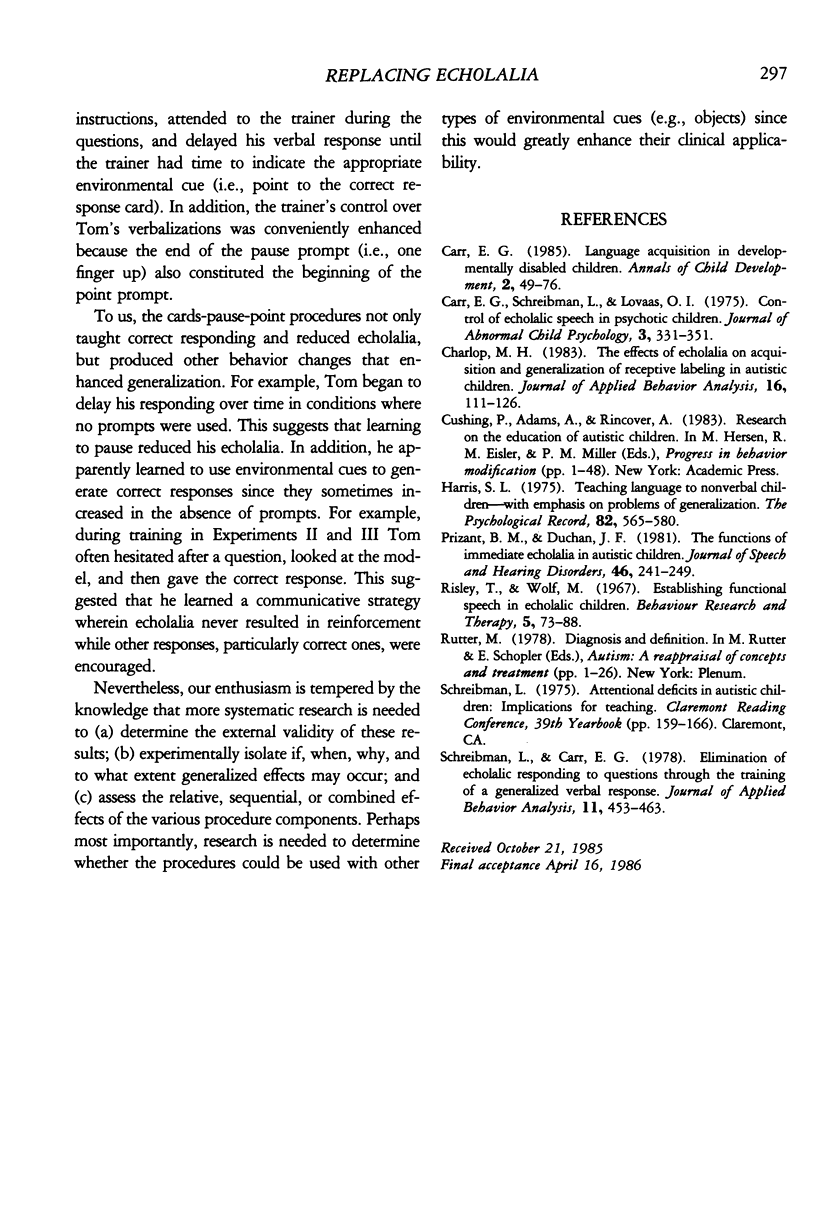
Selected References
These references are in PubMed. This may not be the complete list of references from this article.
- Carr E. G., Schreibman L., Lovaas O. I. Control of echolalic speech in psychotic children. J Abnorm Child Psychol. 1975;3(4):331–351. doi: 10.1007/BF00917420. [DOI] [PubMed] [Google Scholar]
- Charlop M. H. The effects of echolalia on acquisition and generalization of receptive labeling in autistic children. J Appl Behav Anal. 1983 Spring;16(1):111–126. doi: 10.1901/jaba.1983.16-111. [DOI] [PMC free article] [PubMed] [Google Scholar]
- Harris S. L. Teaching language to nonverbal children--with emphasis on problems of generalization. Psychol Bull. 1975 Jul;82(4):565–580. doi: 10.1037/h0076903. [DOI] [PubMed] [Google Scholar]
- Prizant B. M., Duchan J. F. The functions of immediate echolalia in autistic children. J Speech Hear Disord. 1981 Aug;46(3):241–249. doi: 10.1044/jshd.4603.241. [DOI] [PubMed] [Google Scholar]
- Risley T., Wolf M. Establishing functional speech in echolalic children. Behav Res Ther. 1967 May;5(2):73–88. doi: 10.1016/0005-7967(67)90001-0. [DOI] [PubMed] [Google Scholar]
- Schreibman L., Carr E. G. Elimination of echolalic responding to questions through the training of a generalized verbal response. J Appl Behav Anal. 1978 Winter;11(4):453–463. doi: 10.1901/jaba.1978.11-453. [DOI] [PMC free article] [PubMed] [Google Scholar]


